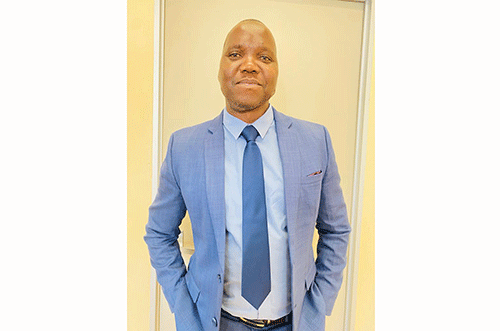Elvis Sinfwa Sinfwa has devoted his career to ensuring safety and security at the workplace. He strongly believes workplace safety is a crucial aspect of any institution’s success, and that safe workplaces lead to the success of the institution.
Sinfwa is a deputy director in the Ministry of Industrialisation and Trade. He is heading the division of security and risk management services in the ministry. Part of his key responsibilities is to ensure the implementation of safety and security measures which are meant to safeguard the assets of the ministry, including the safety and security of staff members.
“Those safety measures are meant
to protect employees from harm,
injury or illness. Ensuring workplace safety is important, from legal compliance and financial consequences to employee well-being and brand image,” Sinfwa narrates.
He is also part of the team that advises the ministry on matters of corporate governance, including escalating integrity, transparency, honesty and patriotism amongst staff members.
“The most satisfying thing about my job is the fact that I am able to contribute positively towards the safety and security of my colleagues, and that I contribute to the overall national security of our country,” he adds.
Sinfwa joined the public service in the year 2001 in the Namibian Police Force as a constable, where he served for more than three years before he left for the private sector.
In 2018, Sinfwa rejoined the public service as chief security operations officer in the Ministry of Urban and Rural Development, where he served for a year and went back to the private sector until April 2022, when he joined the Ministry of Industrialisation and Trade.
When asked how his expertise is beneficial to the public sector, especially to his ministry, Sinfwa says “my expertise is beneficial to public service because it serves as a deterrent to many issues that are security-related such as corruption, amongst other criminal behaviours which we experience in the public service.”
There is no job without challenges, and Sinfwa points out a lack of understanding of security issues by staff members, andunderstanding the importance of safety and security in the workplace as some of the challenges he faced. He adds budgetary constraints, which he notes sometimes make the implementation of certain security measures difficult.
Accomplishments
With regards to work-related accomplishment, Sinfwa was beaming. “From 1 April 2022, I have been able to implement a number of security risk control measures, which have brought about a reduction in the security incidences that were experienced before.
“I have also successfully conducted security awareness briefings for all staff members of the ministry, both at headquarters and regional offices.”
He asserts that the internal awareness briefings he conducted helped staff members to understand the importance of security, and how their actions that are related to security matters affect their own safety and security and that of others and to a larger extent, the importance of peace and stability in the country.
He says what attracted him to the public service sector is job security. “Working in the public sector is typically stable. Once hired, you can enjoy considerable job security from layoffs. Many people who work in the government have long careers and work till retirement age, while others leave when they want. This job safety is a significant benefit that is relatively uncommon in the private sector as it’s often volatile and prone to occasional downsizing, restructuring and layoffs,” he reasons.
Sinfwa also points to training and capacity-building as some of the benefits one can get from the public sector. “The government is committed to realising civil servants’ potential. Employees are often encouraged, if not required, to enhance their skills set by participating in training programmes, progressing their professional development, or achieving external qualifications. This can lead to further career opportunities” he observes.
Regarding the misconception that civil servants are unproductive and inefficient, Sinfwa says “there are isolated cases where staff members in the public service are inefficient. But there are always factors to such inefficiency, which the government is committed to resolving. Generally speaking, members of the public service do work hard to deliver services to the Namibian populace.”
Wishlist
Sinfwa wishes to retire in public service. “My wish is to continue serving in the public sector in different capacities that may be assigned to me, and of course to keep climbing the ladder of ranks,” he enthuses.


